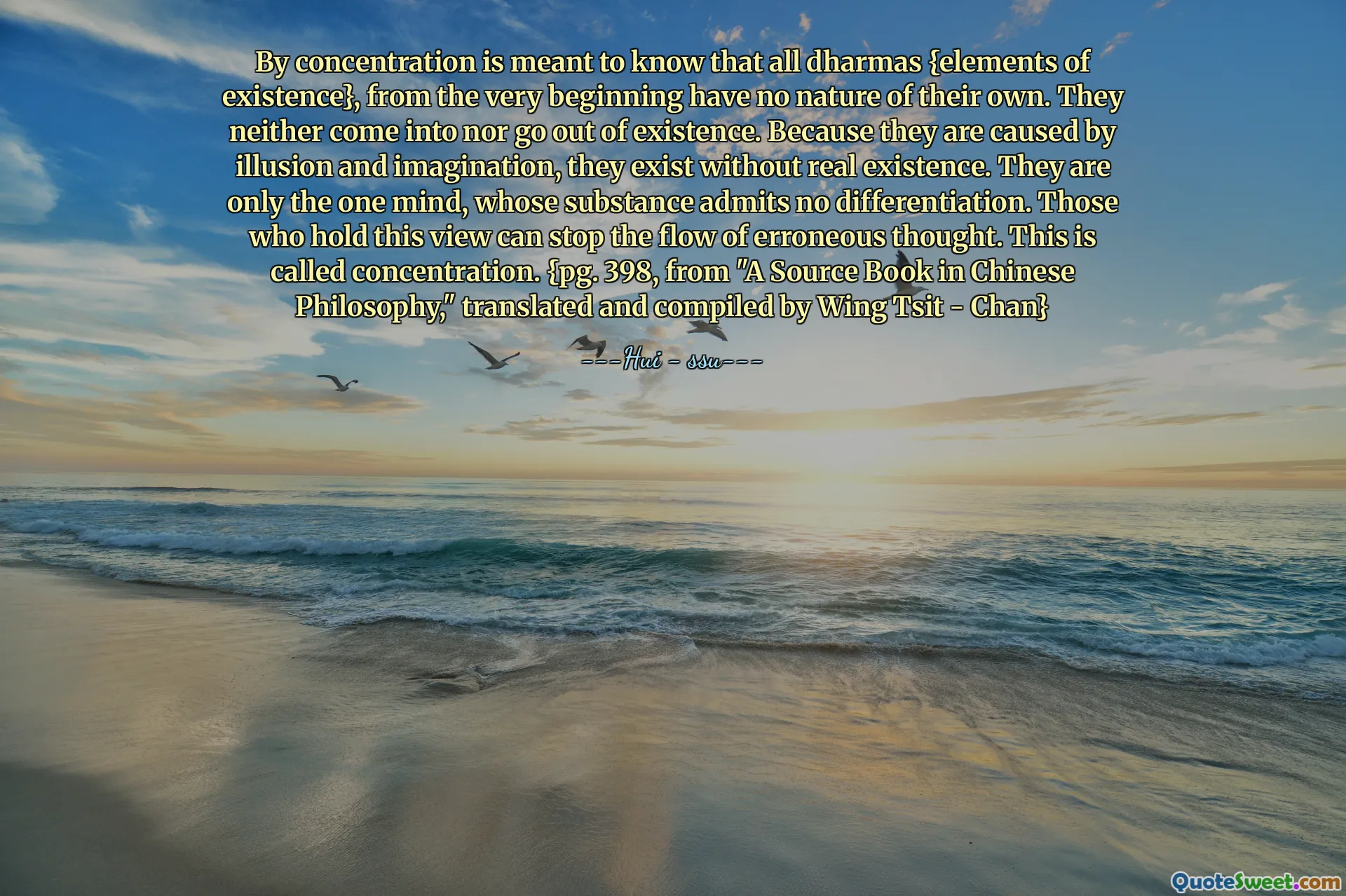
By concentration is meant to know that all dharmas {elements of existence}, from the very beginning have no nature of their own. They neither come into nor go out of existence. Because they are caused by illusion and imagination, they exist without real existence. They are only the one mind, whose substance admits no differentiation. Those who hold this view can stop the flow of erroneous thought. This is called concentration. {pg. 398, from "A Source Book in Chinese Philosophy," translated and compiled by Wing Tsit - Chan}
This quote offers a profound reflection on the nature of existence and the practice of concentration from a philosophical perspective deeply rooted in Eastern thought. It challenges the conventional perception of reality by asserting that all elements of existence — dharmas — lack an inherent nature and are not truly born or extinguished. This viewpoint aligns closely with concepts found in Buddhist philosophy, particularly notions of emptiness and non-self, where the phenomena we experience are understood as projections of the mind, arising from illusion and imagination.
The idea that all dharmas are fundamentally a manifestation of a single undifferentiated mind invites a radical shift in perspective — from seeing the world as a collection of independent objects to perceiving it as a unified whole without distinct boundaries. This insight is not just theoretical but practical: it serves as a foundation for concentration, which here is described not merely as focused attention but as a meditative recognition that can halt the flow of mistaken or erroneous thought.
Such concentration enables liberation from mental constructs and disturbances, pointing toward a state of mental clarity and tranquility. It implies that through disciplined understanding and mindfulness, one can achieve a direct experience of reality as it is, free from the false distinctions and labels imposed by the ordinary mind. This perspective encourages a deep introspection and the cultivation of wisdom that transcends surface appearances, fostering peace and enlightenment.
In sum, this quote beautifully encapsulates the transformative power of philosophical insight combined with meditative concentration, emphasizing that true understanding of reality is inseparable from the practice of calming and purifying the mind.











